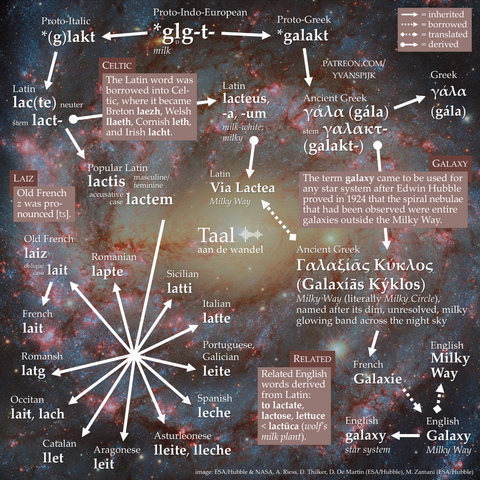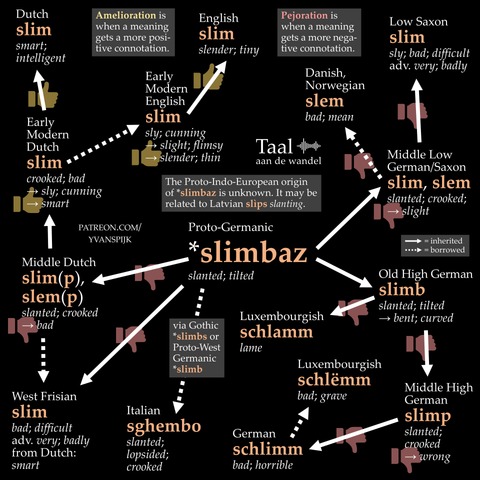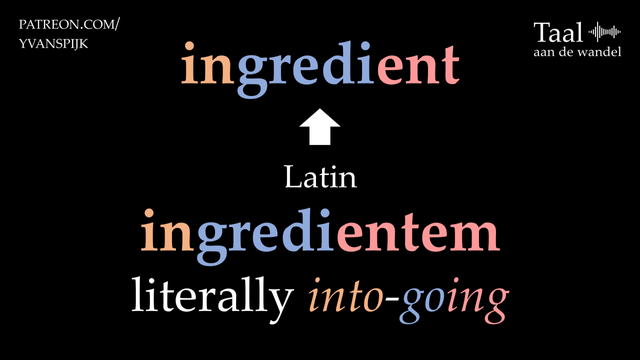The English words 'galaxy' and 'latte' are etymologically related.
'Galaxy' stems from the Ancient Greek word for "milk", 'gála', which has the same Proto-Indo-European ancestor as Latin 'lactem', which became 'latte' in Italian.
The Milky Way was named after its milky glowing band in the night sky. 'Galaxy' used to mean "Milky Way", but it became a word for any star system when it turned ours is not the only one in the universe.




